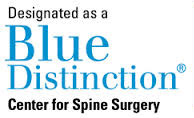I’ve Read that Back Pain can be Psychological. Is this True?
Psychosomatic or Psycho-physiological Back Pain
Yes, back pain can indeed have psychological components. This concept is often referred to as psychosomatic or psycho-physiological pain. It suggests that emotional and psychological factors can play a significant role in the perception and management of pain, including back pain.
For instance, stress, anxiety, and depression are known to affect how the body perceives pain. People who are under significant psychological stress or who have mood disorders may report higher pain levels. This doesn’t mean the pain isn’t real, but rather that psychological factors may intensify the pain experience or even contribute to its onset.
Chronic back pain, in particular, can be intertwined with psychological conditions. The pain can lead to stress and depression, which in turn can exacerbate the pain, creating a cycle that’s difficult to break. In treating chronic back pain, healthcare providers often consider psychological therapies or stress management techniques alongside physical treatments to address these aspects.
There are several psychological therapies that can be effective in managing back pain, particularly when it has a chronic or stress-related component.
Here are two of the more commonly recommended therapies:
 Cognitive Behavioral Therapy (CBT): This therapy helps patients identify and modify negative thought patterns and behaviors that can contribute to the experience of pain.
Cognitive Behavioral Therapy (CBT): This therapy helps patients identify and modify negative thought patterns and behaviors that can contribute to the experience of pain.- Biofeedback: This technique uses electronic devices to teach patients to control bodily processes that are normally involuntary, such as muscle tension, heart rate, and blood pressure. By learning to control these functions, patients can reduce muscle tension and pain.
These therapies often work best when combined with traditional medical treatments for back pain, such as physical therapy and medication. A multidisciplinary approach can provide comprehensive support for both the physical and psychological aspects of pain.
